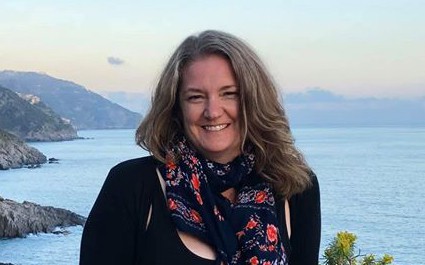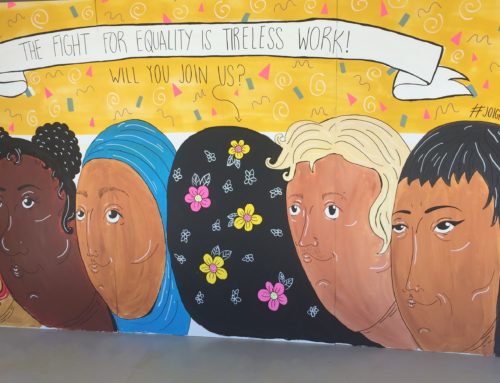“Society told me to leave abuse, but when I left, society wasn’t there.”
These words from a former client have stayed with Dara Rayner, Operations Manager at Anderson House shelter for women and children in Charlottetown, PEI. She sees too many women summon the courage to leave violent relationships, and then struggle to find the supports they need to rebuild their lives.
“The resources just aren’t meeting the needs,” Rayner says, and the challenge is particularly acute because of the housing shortage in PEI, which has been described as the worst in the country.
But through the shelter’s Aspire Program – which received funding from the Canadian Women’s Foundation – women at Anderson House have had access to additional supports to help them move forward with their lives. In an interview, Rayner discusses how the program impacts women’s journeys:
Are there barriers or issues specific to being in a rural and remote area that women in the community are facing?
Here in Prince Edward Island, we’re facing a housing crisis that makes it very difficult for us to help women find affordable housing after their stay at the shelter. It used to take about three weeks to find a woman an apartment. Now women are staying with us for up to three months.
It’s such an anxious time for the women who are staying here. They face the daily uncertainty of not knowing where they and their children will go next, and whether they will remain safe. But because of the Aspire program, we’ve had the resources to work with women individually to develop a plan based on their specific needs.
Can you talk about the program’s approach and the process of developing an action plan?
The action plan addresses issues including risk assessment and safety planning, health and mental health, social assistance benefits, education and training, career development and employment, and legal and financial issues.
Housing is one part of the puzzle, but many women face challenges like custody and the legal system, or finding particular services for their children. We surround them with this information. We sit with them, listen, and support their decision-making. We work to rebuild their self-esteem.
From your point of view, what does this program provide that is most helpful and supportive to clients?
When women come to us, they often feel they’ve hit rock bottom. But we help them to see the strength it took to overcome their fears and leave — because that’s the most dangerous time in an abusive relationship. Our goal to is help our clients understand how powerful they are.
We’re also able to support women’s emotional wellness with extras like gym passes or swim passes. When a mother in the shelter can provide her children some much-needed downtime at the pool, it’s incredible to see how their faces light up.
As a service provider, what for you is the most rewarding about working with clients?
It’s hard not to tear up when I think about the impact of this program on the women who stay with us. When a woman leaves the shelter, it’s so rewarding to hear that she feels valued and heard where she didn’t when she came through our doors. This is such an important part of breaking the cycle of violence. Once a woman has faith in her abilities, she’s unstoppable.
This post is part of the Meet The Tireless series: interviews featuring inspiring people and groups who use their talents, expertise, and resources to help advance gender equality in Canada. Visit JoinTheTireless.ca to find out what you can do.





